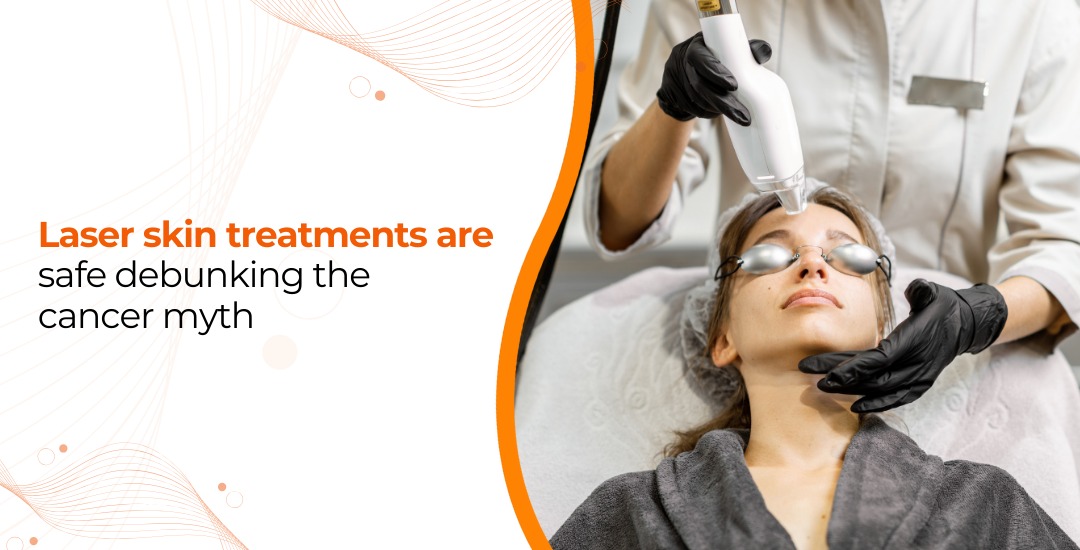Laser skin treatments are among the most advanced and widely used cosmetic procedures today. From tackling pigmentation and acne scars to removing unwanted hair, they offer effective, visible results. But a common question still lingers in the minds of many patients—can laser skin treatment cause cancer?
At Hair Creations, we understand these concerns. As a trusted hair transplant clinic in Hyderabad offering medically guided laser treatments, our top priority is your safety. This blog will help you understand what laser treatments actually do, how safe they are, and what precautions you can take to protect your skin health.
Let’s begin with the basics—what really happens during a laser skin treatment?
Understanding Laser Skin Treatments
Laser treatments use high-intensity light beams that target specific skin layers to improve texture, remove blemishes, or slow hair growth. Common laser types include CO2, diode, Nd:YAG, and Q-switched lasers—each designed for specific skin concerns.
The important point? These lasers are non-ionizing, meaning they don’t have the type of radiation that damages DNA or causes cancer—unlike X-rays or ultraviolet (UV) rays.
So, if lasers aren’t like UV rays, how can you ensure they’re always safe?
How Can I Ensure Safe and Effective Laser Skin Treatment?
Safety is all about where, how, and by whom the treatment is done. At Hair Creations, we follow strict medical protocols:
- All equipment is FDA-approved and regularly maintained
- Treatments are performed by trained dermatologists and technicians
- We conduct skin assessments before every procedure
- Aftercare is provided to reduce any temporary irritation or sensitivity
When performed professionally, laser treatments are among the safest aesthetic procedures available.
Thinking about laser treatments? Schedule a consultation at Hair Creations and learn how we prioritize your safety and results.
How Safe Are Laser Skin Treatments?

Here’s the truth: no scientific evidence links cosmetic laser treatments to skin cancer. According to the American Cancer Society, non-ionizing radiation used in dermatologic lasers does not cause cancer.
In fact, lasers are often used to treat pre-cancerous lesions or reverse sun damage, reducing cancer risk in some patients.
That said, can lasers affect your skin in other ways?
Can Laser Skin Treatments Be Harmful to Skin in Other Ways?
While lasers don’t cause cancer, side effects may occur if procedures are performed incorrectly or on the wrong skin type. Possible risks include:
- Redness or swelling
- Skin burns or scabbing
- Pigmentation changes(especially in darker skin tones)
- Infection, if post-care is ignored
Want safe, effective, and personalized laser skin care? Visit Hair Creations – your expert skin and hair clinic in Hyderabad.
FAQs
Risks of Laser Skin Treatments
Minor side effects include redness, swelling, and temporary pigmentation. These are preventable with proper pre- and post-treatment care.
Is it safe to undergo laser skin treatments if I have a history of skin cancer?
It depends on your medical history. Always consult a dermatologist before undergoing any cosmetic treatment if you’ve had skin cancer.
Are there long-term risks to laser skin treatments?
No studies show long-term cancer risks. When performed correctly, the procedures are considered safe and effective over time.
What are the signs of an adverse reaction to laser treatment?
Persistent redness, blistering, or oozing beyond 48 hours may indicate an issue. Contact your doctor immediately if these symptoms occur.
Are there any specific types of lasers that are riskier than others?
Ablative lasers (e.g., CO2) are stronger and can cause temporary skin damage if misused. However, under expert hands, they are completely safe.
References:
1. American Cancer Society – Are Lasers Safe?
2. Harvard Health – Cosmetic Laser Procedures and Safety

